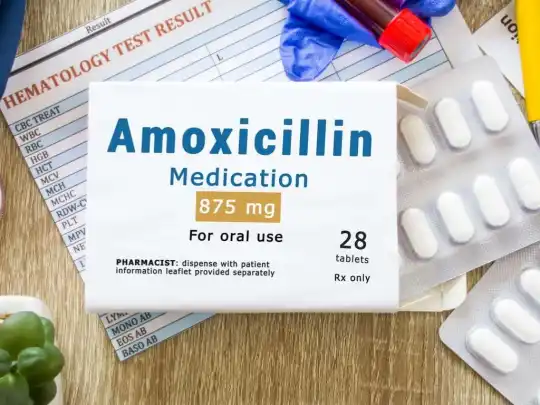Five Side Effects Of Amoxicillin That You Never Knew

Amoxicillin is a penicillin antibiotic that is used to treat bacterial infections in the lungs, nose, throat, skin, and urinary tract. The side effects of amoxicillin are classified as either common or unusual.
Amoxicillin' s most common side effects
1. Diarrhoea

This is a common side effect of amoxicillin. Amoxicillin, like other antibiotics, eliminates the natural bacteria in the gut, causing intestinal disturbance and diarrhea, according to healthline. To treat amoxicillin- induced diarrhoea, consider taking a probiotic pill and staying hydrated. Consult a doctor if you notice blood streaks in your stool or are frequently dehydrated.
2. Uncomfortable stomach
Although stomach pain is common in almost everyone, it can be dangerous if you observe blood in your stool or vomit. If you take your amoxicillin with a meal, you can avoid this side effect. Peppermint has also been linked to symptom relief.
3. Yeast infection in the cervix

Amoxicillin, while destroying hazardous bacteria in the body, may also kill " good" bacteria that govern pH balance in the vaginal area, allowing yeast to grow and thereby causing yeast infection.
You can receive medications to treat the sickness, but if you' re not sure if it' s a yeast infection, consult your doctor.
4. Migraine

A headache is a common adverse effect of taking amoxicillin pills. Simply take your doses with meals and drink lots of water to avoid headaches. Tylenol and Aleve, which are used to treat headaches and migraines, can also help with pain relief.
5. Disturbances in Taste

Patients taking Amoxicillin capsules may experience taste difficulties, such as meals with a metallic flavor, because the medications impact how the body absorbs mineral zinc. A mineral deficiency can result in an unpleasant or metallic taste. Some people become dehydrated as a result of medications such as amoxicillin causing dry mouth. You can stay hydrated by drinking plenty of water.
Some persons who take amoxicillin may become hypersensitive to extremely sweet or salty tastes. Consult your doctor if you have a peculiar taste in your mouth and are having difficulty eating.
Side effects that are less common
Allergic symptoms such as cheek, lip, and tongue swelling, as well as shortness of breath
2. Breathing difficulties
3. Blemishes and other skin problems
4. experiencing dizziness
5. Difficulty urinating or dark urine as a result of problems with blood, liver, or kidney function
By one100_tip

Comments
Post a Comment